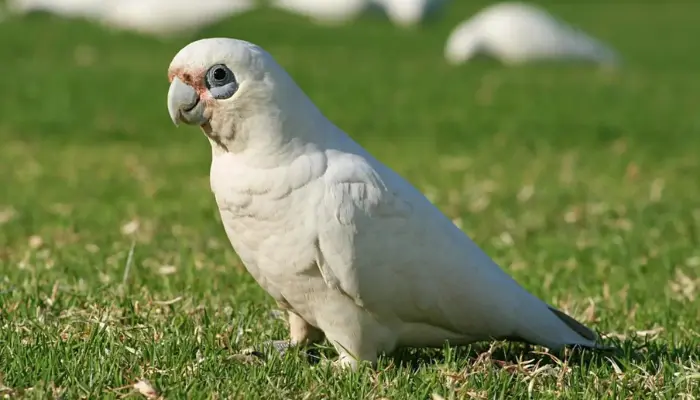The Ducorps Corella Cockatoo also known as the Solomon Islands Cockatoo is a captivating bird species renowned for its charming personality and striking appearance. This bird is native to the lush and tropical environments of the Solomon Islands. This medium-sized white cockatoo with distinctive blue eye-rings and a pale pink patch around its beak stands out as a unique member of the avian world.
Their intelligent and social nature and playful behavior make them popular among bird enthusiasts. Their relatively calm demeanor compared to other cockatoos which makes them suitable companions for those looking to keep parrots as pets. The Ducorps Corella Cockatoo faces challenges in the wild due to habitat loss and the pet trade, highlighting the importance of conservation efforts to ensure their survival for future generations.
Origin and History of Ducorps Corella Cockatoo
The Ducorps Corella Cockatoo (Cacatua ducorpsii) also known as the Solomons Cockatoo or Solomon Islands Cockatoo is a small white cockatoo native to the Solomon Islands. This bird was first described in 1858 by French naturalist Charles Lucien Bonaparte and named after explorer Jean Ducorps. Inhabiting lowland forests, secondary growth areas, and plantations, these birds are notable for their predominantly white plumage, blue eye-rings, and short, raisable crests.
This species is not currently endangered but their habitats face threats from deforestation and human encroachment, necessitating conservation efforts. Ducorps Corellas are popular pets due to their playful affectionate nature and require substantial mental stimulation and social interaction. Their global popularity as pets highlights the need for responsible ownership and the importance of ongoing conservation to protect their natural habitats.
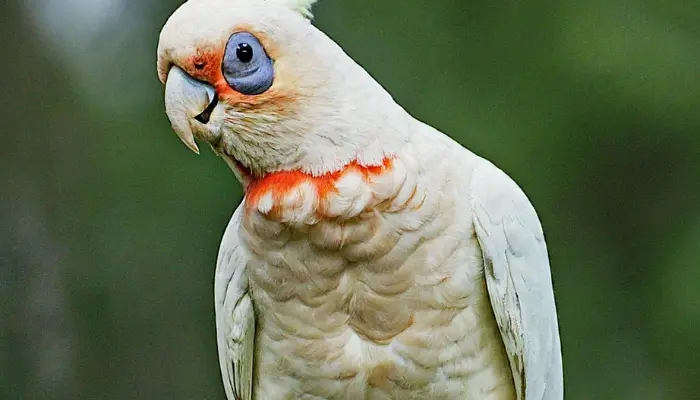
Scientific Classification of Ducorps Corella Cockatoo
The scientific classification of the Ducorps Corella Cockatoo is as follows.
| Kingdom | Animalia (Animals) |
| Class | Aves (Birds) |
| Family | Cacatuidae |
| Scientific Name | Cacatua ducorpsii |
| Common Name | Ducorps Corella Cockatoo |
| Bird Size | The Ducorps Corella Cockatoo is a relatively small cockatoo species, typically measuring around 30 centimeters (12 inches) in length. |
| Feather Color | The plumage of the Ducorps Corella Cockatoo is predominantly white, with a distinctive blue eye-ring and a short, raisable crest. |
| Crest Color | Similar to other cockatoos, the Ducorps Corella sports a prominent crest on its head, which is white. |
| Lifespan | These cockatoos have a relatively long lifespan, often living between 40 to 60 years in captivity with proper care. |
| Price Range |
Prices for Ducorps Corella Cockatoos can vary widely depending on factors such as age, temperament, and whether they are hand-reared or parent-raised. Typically, prices start from $500 to $1500. |
Ducorps Corella Cockatoo Colors and Marking
Ducorp’s Corella also known as the Solomon Islands Cockatoo is a distinctive and charming species of cockatoo. Here are detailed descriptions of their colors and markings.
- Overall Color: The predominant color of Ducorp’s Corella is white. Their feathers are mostly white, giving them a bright and clean appearance.
- Crest: They have a short, rounded crest that they can raise and lower. The crest feathers are white, and when raised, it forms a fan-like shape.
- Head: Their head is entirely white, including the feathers around the eyes and beak.
- Beak: The beak is light gray, robust, and slightly curved, typical of cockatoos, adapted for cracking nuts and seeds.
- Facial Skin: One of the distinguishing features of the Ducorp’s Corella is the blue skin around their eyes. This area, known as the periophthalmic ring, is a pale to medium blue and contrasts with the white feathers.
- Underwings and Tail: When in flight, the undersides of their wings and tail may show a subtle yellowish or pale yellow tint. This can be more visible when the bird spreads its wings or tail feathers.
- Eyes: Their eyes are dark brown or black, which stand out against the blue periophthalmic ring and white feathers.
- Color: The legs and feet are gray. They have zygodactyl feet (two toes facing forward and two backward), which are well-suited for gripping branches and climbing.
- Appearance: There is no significant visual difference between males and females, making it challenging to distinguish between the sexes without genetic testing or observing behavioral differences during breeding.
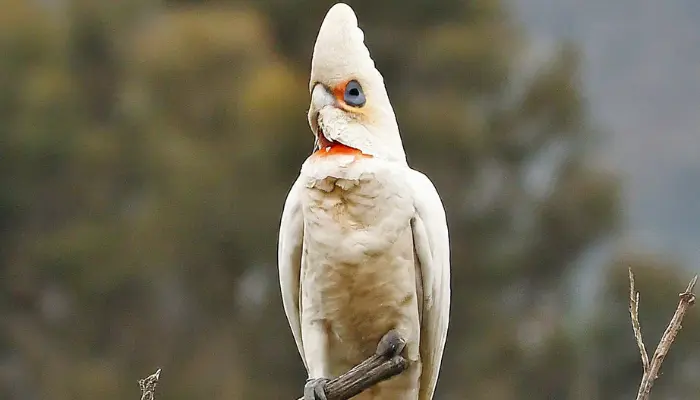
Caring Tips for Ducorps Corella Cockatoo
Ducorps Corella Cockatoos are beautiful and intelligent birds that require proper care to thrive. Here are some caring tips.
- Spacious Cage: Provide a large cage with plenty of space for your Ducorps Cockatoo to move around, stretch its wings, and play. The cage should be sturdy and made of bird-safe materials.
- Toys and Enrichment: These birds are highly intelligent and need mental stimulation. Offer a variety of toys such as chew toys, puzzle toys, and interactive toys to keep them entertained and prevent boredom.
- Socialization and Interaction: Ducorps Cockatoos are social birds and need regular interaction with their human caregivers. Spend time talking to, playing with, and training your bird daily to build a strong bond and prevent loneliness.
- Healthy Diet: Provide a balanced diet consisting of high-quality pellets, fresh fruits, vegetables, and small amounts of seeds and nuts. Avoid feeding them foods that are toxic to birds, such as avocado, chocolate, caffeine, and alcohol.
- Fresh Water: Ensure access to clean, fresh water at all times. Change the water in their bowl daily and clean the water and food dishes regularly to prevent bacterial growth.
- Grooming: Trim your Ducorps Cockatoo’s nails and wings as needed to prevent injury and ensure they can fly safely within your home. Consult with a veterinarian or avian groomer for guidance on proper grooming techniques.
- Environmental Considerations: Maintain a comfortable environment for your bird by keeping the temperature in their living area consistent and avoiding drafts. Provide access to natural sunlight or full-spectrum lighting to support their overall health.
- Regular Veterinary Check-ups: Schedule regular check-ups with an avian veterinarian to monitor your bird’s health and address any potential issues early on. Vaccinations, parasite control, and health screenings are essential for maintaining their well-being.
- Quiet Environment: While these birds can be vocal, they also appreciate a quiet environment for rest and relaxation. Place their cage in a location away from excessive noise and household disturbances, especially during their designated sleep times.
- Patience and Understanding: Like all pets, Ducorps Cockatoos require patience, love, and understanding. Be patient with them as they learn new behaviors and provide positive reinforcement during training sessions.
By following these caring tips you can ensure that your Ducorps Cockatoo remains healthy, happy, and well-adjusted in their home environment.
Common Health Problems of Ducorps Corella Cockatoo
Ducorps Cockatoos are delightful birds known for their playful and affectionate personalities. Like all pets, they can be susceptible to certain health issues. Here are some common health problems that Ducorps Cockatoos may experience.
- Psittacine Beak and Feather Disease (PBFD): This viral disease affects the feathers and beak of birds. Infected birds may show signs of feather loss, abnormal beak growth, and immune system suppression. PBFD is highly contagious and can be fatal if not managed properly.
- Psittacosis (Parrot Fever): Caused by the bacterium Chlamydia psittaci, psittacosis can affect birds and humans alike. Infected birds may show symptoms such as respiratory distress, lethargy, and discharge from the eyes or nostrils. Prompt veterinary treatment is necessary, as psittacosis can be transmitted to humans.
- Respiratory Infections: Like many birds, Ducorps Cockatoos are prone to respiratory infections, which can be caused by bacteria, viruses, or fungi. Symptoms may include sneezing, nasal discharge, labored breathing, and reduced activity.
- Obesity: Improper diet and lack of exercise can lead to obesity in Ducorps Cockatoos. Overweight birds are at risk of various health problems, including heart disease, joint issues, and liver problems. Providing a balanced diet and opportunities for physical activity is essential for maintaining a healthy weight.
- Gastrointestinal Issues: Cockatoos may experience gastrointestinal problems such as diarrhea, vomiting, or impacted crop. These issues can be caused by dietary indiscretion, bacterial infections, or parasites. Maintaining proper hygiene and feeding a balanced diet can help prevent gastrointestinal problems.
- Feather Plucking: Ducorps Cockatoos, like many parrots, may engage in feather plucking behavior due to stress, boredom, or underlying health issues. Feather plucking can lead to skin irritation, infection, and self-inflicted injuries. Identifying and addressing the underlying cause of stress or discomfort is essential for managing this behavior.
- Nutritional Deficiencies: Poor diet can result in nutritional deficiencies in Ducorps Cockatoos, leading to various health problems such as weak bones, beak abnormalities, and compromised immune function. Providing a balanced diet that includes a variety of fresh fruits, vegetables, nuts, seeds, and high-quality pellets is crucial for meeting their nutritional needs.
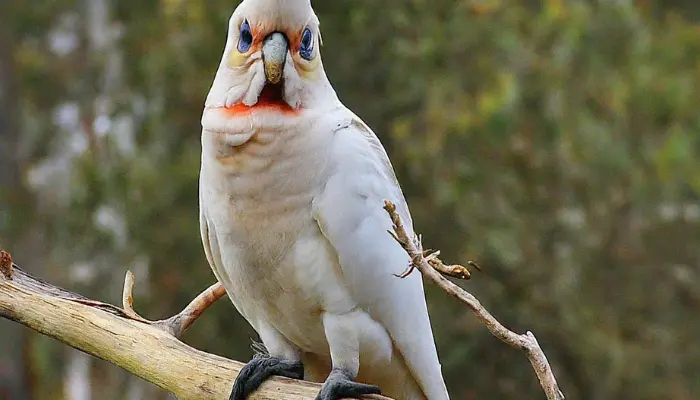
Best Diet for Ducorps Corella Cockatoo
A well-balanced diet is crucial for the health and happiness of a Ducorps Corella Cockatoo. Here is a general guideline for their dietary needs.
- Pellets: High-quality pellets designed specifically for Cockatoos should form the base of their diet. These pellets provide essential vitamins, minerals, and nutrients and should make up about 60-70% of their daily food intake.
- Fresh Vegetables: Offer a variety of fresh vegetables daily, such as carrots, broccoli, spinach, kale, bell peppers, and squash. These provide essential vitamins and minerals and should make up about 20-25% of their diet.
- Fresh Fruits: Offer a variety of fresh fruits in moderation, such as apples, oranges, bananas, grapes, and berries. Fruits should make up about 10-15% of their diet.
- Nuts and Seeds: Offer nuts and seeds as occasional treats, as they are high in fat. Almonds, walnuts, pecans, and sunflower seeds are good options. Limit nuts and seeds to about 5% of their diet.
- Calcium: Provide a calcium source such as cuttlebone or mineral blocks to help support bone health.
- Water: Ensure access to fresh, clean water at all times.
- Avoid Junk Food: Avoid feeding your Ducorps Corella Cockatoo foods that are high in sugar, salt, or fat, as these can be harmful to their health.
It is essential to monitor your bird’s weight and adjust its diet accordingly. Additionally, providing enrichment activities, such as foraging toys, can help keep your Cockatoo mentally stimulated and physically active.
Top 10 Interesting Facts About Ducorps Corella Cockatoo
Ducorps Corella Cockatoos are fascinating and intelligent birds native to New Caledonia and nearby islands. Here are ten interesting facts about them.
- Unique Appearance: Ducorps Corellas are distinguished by their striking white plumage with subtle pinkish tones on the face and crest. They also have blue eye rings and a beautiful lemon-yellow wash on the underside of their wings.
- Quiet Nature: Unlike some other species of cockatoos, Ducorps Corellas are relatively quiet, making them a popular choice for bird enthusiasts who live in urban areas or apartments.
- Intelligent and Social: These birds are highly intelligent and social creatures. They thrive on interaction with their human caregivers and can develop strong bonds with them.
- Playful Personalities: Ducorps Corellas have playful personalities and enjoy engaging in activities such as playing with toys, solving puzzles, and learning tricks.
- Long Lifespan: With proper care, Ducorps Corellas can live for several decades. Some individuals have been known to live for up to 40 years or more in captivity.
- Dietary Needs: In the wild, Ducorps Corellas primarily feed on a diet of seeds, nuts, fruits, and vegetation. In captivity, they require a balanced diet that includes high-quality pellets, fresh fruits, vegetables, and occasional nuts as treats.
- Excellent Mimics: Like many cockatoo species, Ducorps Corellas are skilled mimics and can learn to imitate a variety of sounds, including human speech and household noises.
- Nesting Habits: Ducorps Corellas typically nest in tree hollows, where they lay their eggs and raise their young. In captivity, they may use nesting boxes provided by their caregivers.
- Vocal Communicators: While they may not be as loud as some other cockatoo species, Ducorps Corellas are still vocal birds and use a variety of calls and vocalizations to communicate with each other and their human companions.
- Conservation Status: Although Ducorps Corellas are not currently considered endangered, they face threats in their natural habitat due to habitat loss, deforestation, and illegal trapping for the pet trade. Conservation efforts are important to ensure their long-term survival in the wild.
These fascinating birds make wonderful companions for experienced bird owners who are willing to provide them with the care, attention, and enrichment they need to thrive.
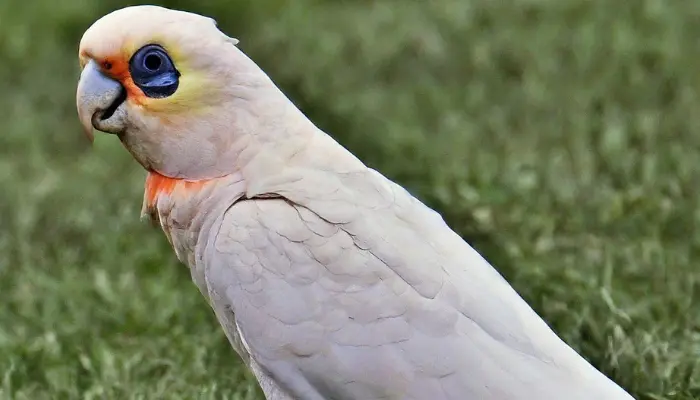
Where to Buy or Adopt a Ducorps Corella Cockatoo
When looking to buy or adopt a Ducorps Corella Cockatoo, there are several options you can explore.
Avian Breeders
Look for reputable avian breeders who specialize in parrots and cockatoos. Ensure that the breeder operates ethically and provides proper care for their birds. You can find breeders through online directories, avian magazines, or by asking for recommendations from local bird clubs or veterinarians.
Avian Rescues and Shelters
Many bird rescues and shelters have Ducorps Corella Cockatoos available for adoption. Adopting from a rescue can be a rewarding experience and gives a bird in need a loving home. Search online for avian rescues in your area or check with animal shelters that may occasionally have birds available for adoption.
Online Classifieds and Bird Forums
Websites and forums dedicated to bird enthusiasts often have classified sections where individuals may advertise birds for sale or adoption. Exercise caution when using these platforms and be sure to thoroughly vet the seller or adopter to ensure the bird’s welfare.
Local Pet Stores
Some reputable pet stores may carry Ducorps Corella Cockatoos or be able to refer you to a breeder or rescue organization. However, be cautious when purchasing from pet stores and ensure that they source their birds from responsible breeders.
